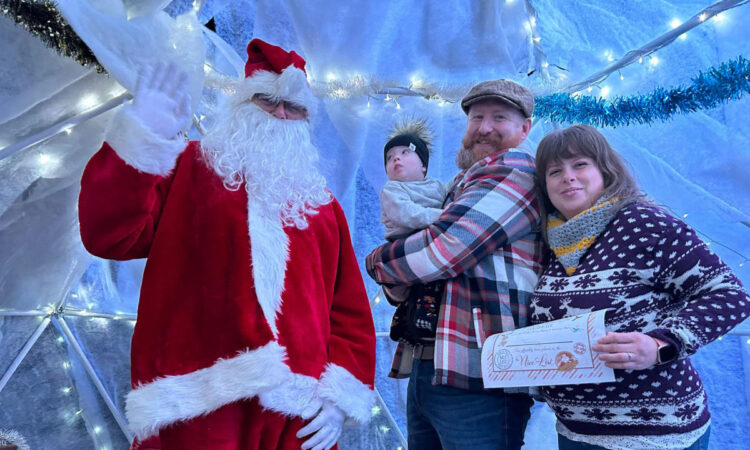
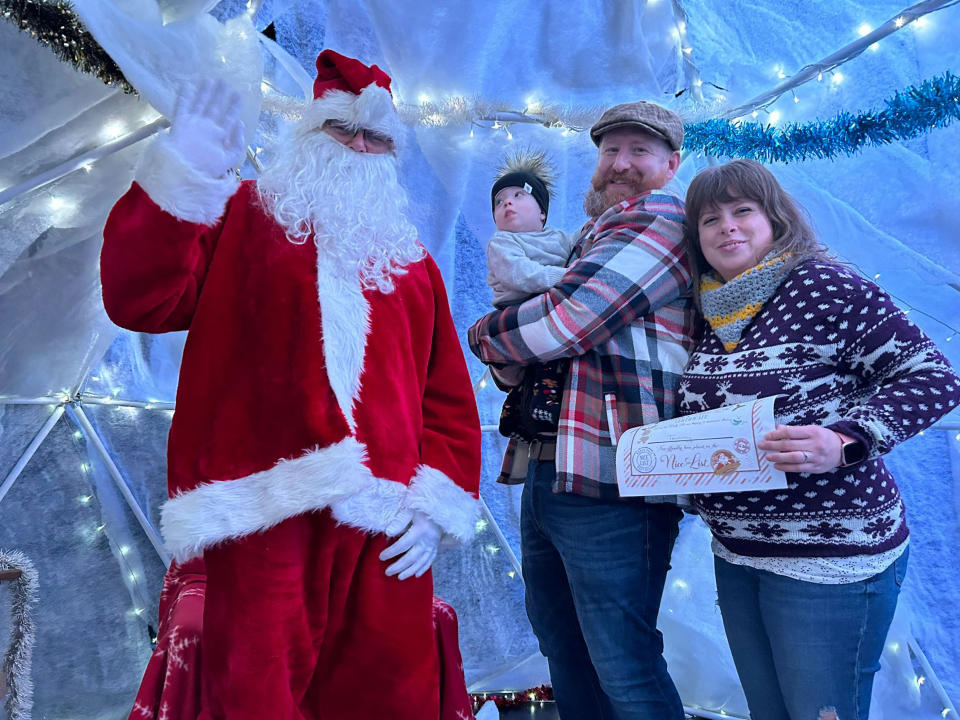
When Jennifer and Matthew Blandford look at their eleven-month-old baby staring at the Christmas tree lights they can’t help but feel grateful. That’s because their much-longed for son, Teddy, was born via IVF that was paid for by a total stranger.
The couple are now celebrating their first Christmas as a family of three after welcoming their baby boy in January, having previously suffering a miscarriage and two failed IVF attempts.
“We’re so excited about our first Christmas with Teddy,” Jennifer, 38, says. “It feels surreal and magical to share such a festive time with a new tiny human.
“Teddy is crawling and exploring so much now and to see him so fascinated by the lights, meeting the big guy and the magic of Christmas through his eyes has just been so heartwarming.
“It makes us so happy. He made us a Christmas card and present at nursery too, which was lovely to receive.”
The family has been making the most of the festive period by attending Christmas fetes and a local light festival, and plan to spend the big day just the three of them, before visiting their family across the other days.
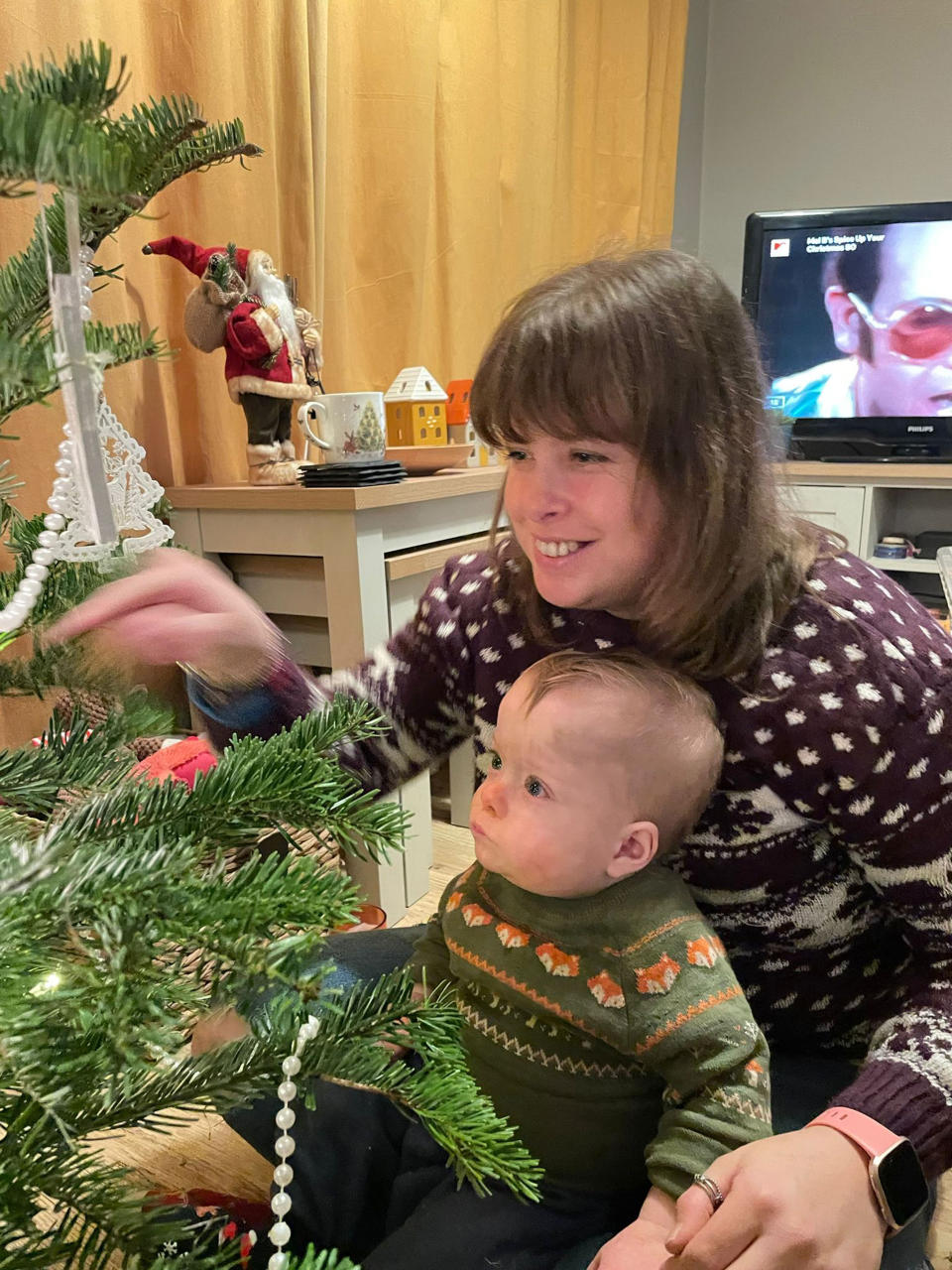
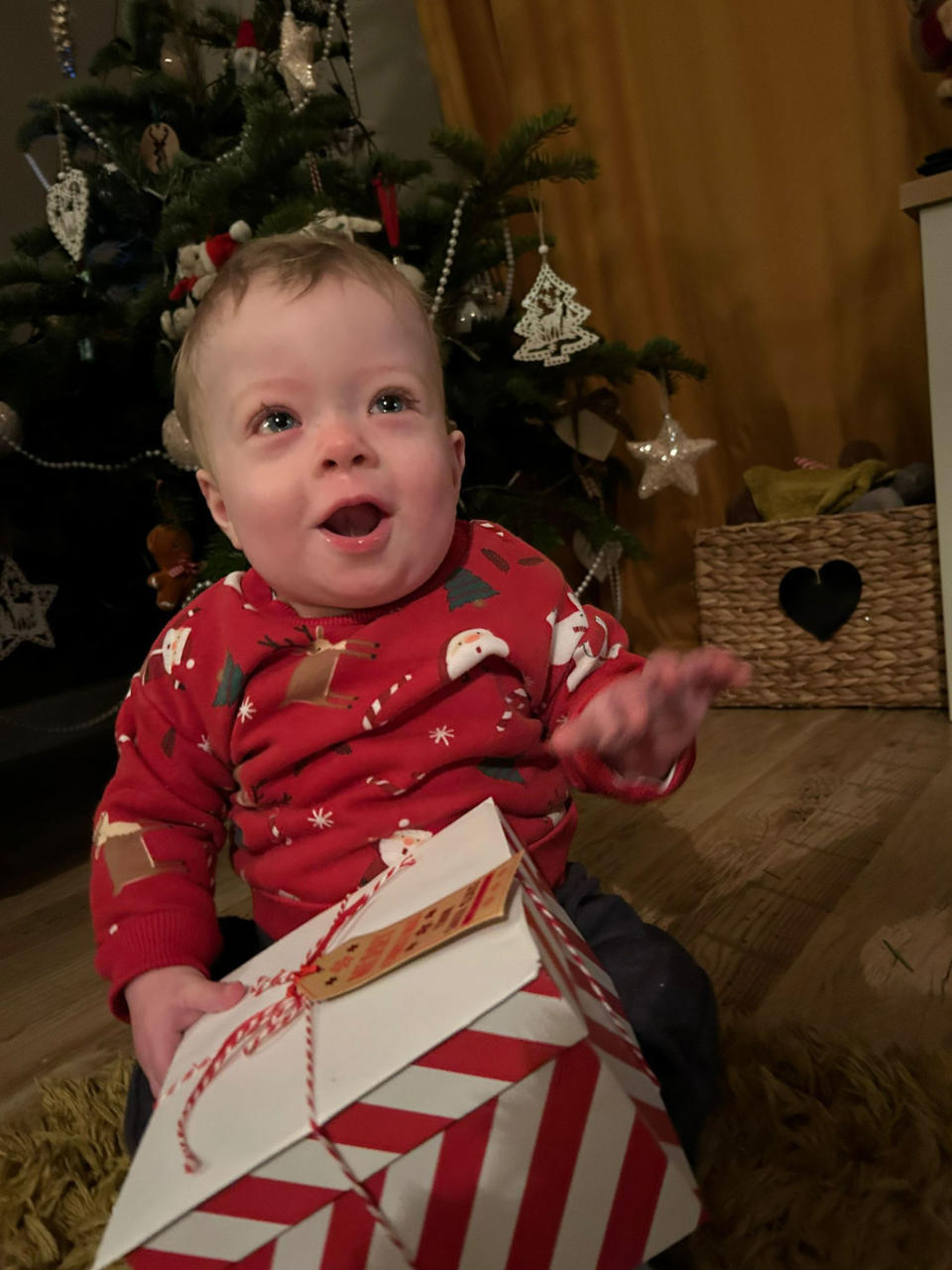
Before conceiving Teddy, the couple, from the New Forest, Hampshire, say they were running out of options having already experienced a painful miscarriage and undergone two previous unsuccessful attempts at IVF, which had been paid for by family members.
Fearing their hopes of starting a family might never be realised, they reached out to a fertility organisation, which helps provide families with financial assistance and emotional support during their fertility journey and were amazed when a kind-hearted donor stepped forward.
The stranger, who the couple only know is called “Elena”, paid £3000 for their third attempt at fertility treatment, which lead to their son being born prematurely seven months later.
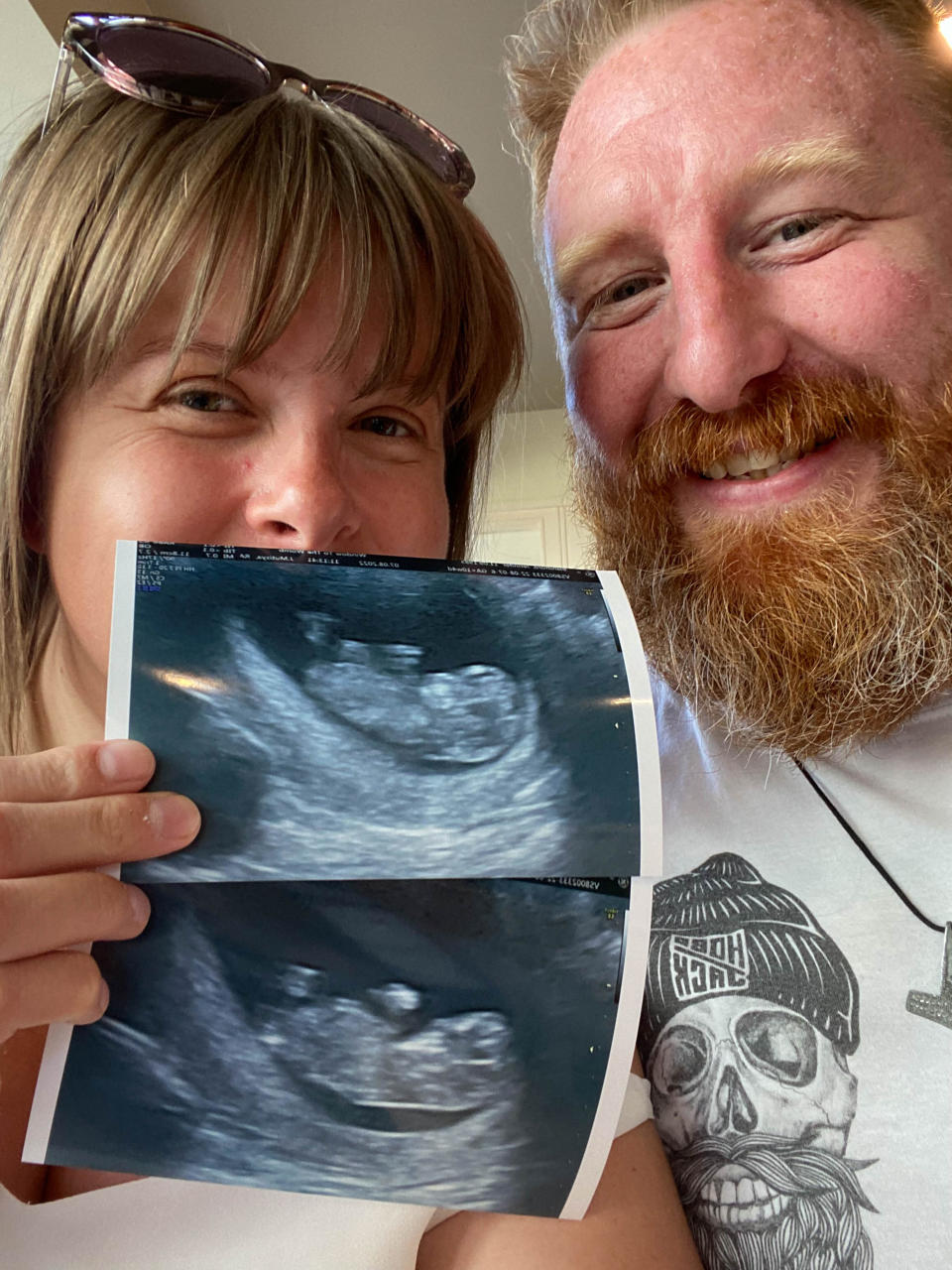
After getting married in August 2019, Jennifer and Matthew started trying for a baby straight afterwards.
But after a year, and experiencing a heartbreaking miscarriage, the couple began looking into fertility treatments.
Unfortunately, because of their age, they weren’t eligible for any free rounds of IVF on the NHS.
In September 2021 Jennifer’s parents gave the couple £4000 for their first round of IVF, which was unsuccessful.
The following April the couple tried again, with Jennifer’s sister and brother-in-law paying £3000 for their second attempt, which had to be dropped due to medical reasons.
“We were both so gutted that we were struggling to fall pregnant,” Jennifer, a teacher, says of their fertility journey.
“We started trying for a baby straight away after we got married in 2019 and didn’t have any luck until January 2021 when I fell pregnant but lost the baby around a week later. It was devastating.”
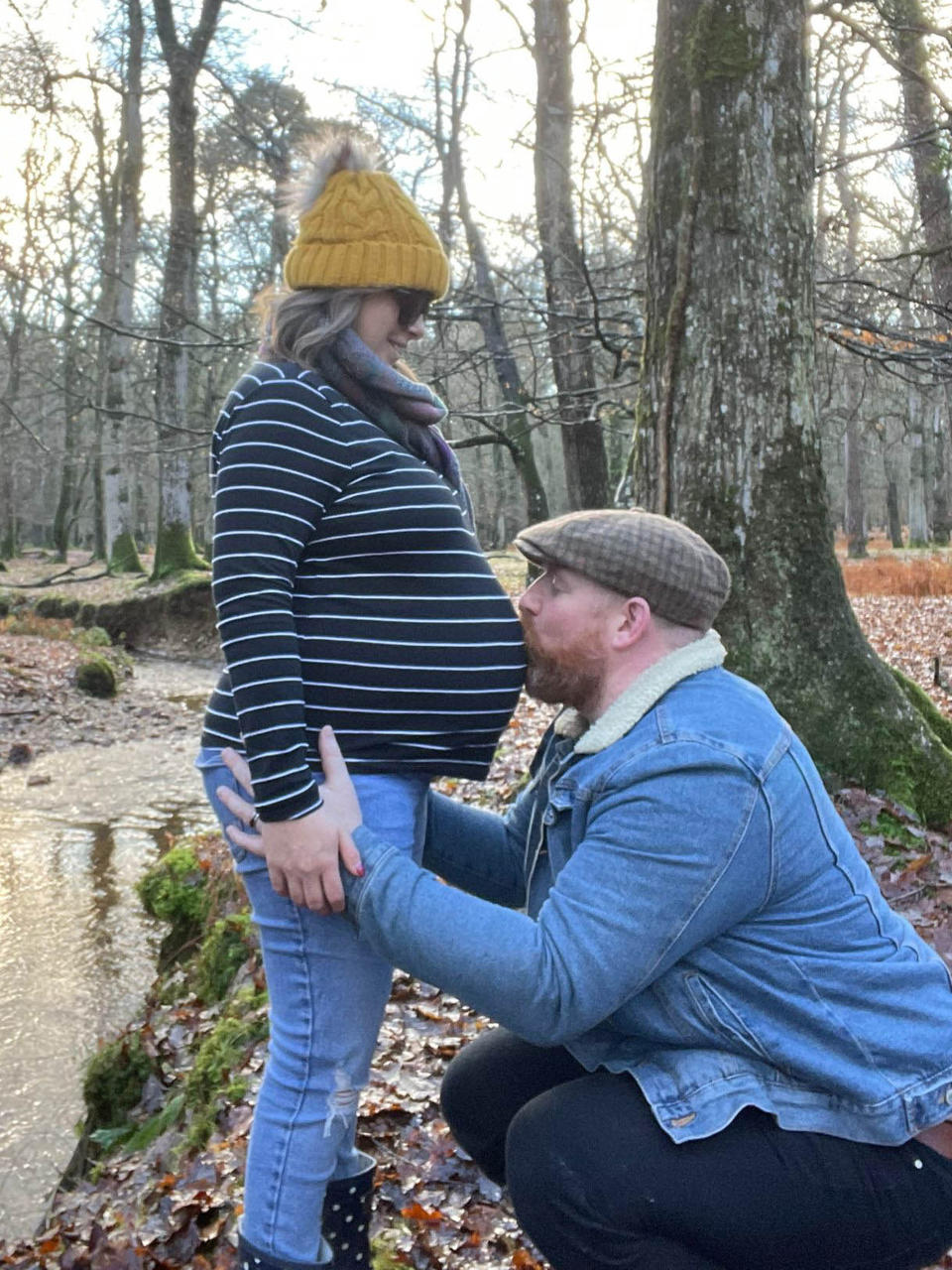
After chatting to Jennifer’s parents about the couple’s struggle, they offered to pay for their first round of IVF.
“We harvested eight embryos from that cycle,” Jennifer continues. “We had one transfer, which didn’t take, and I was ready to give up.
“My body and mind were exhausted from being consumed with trying to have a baby for over two years.
“However, my sister and brother-in-law then offered to pay for our second round of IVF, but I didn’t respond to the medication and again, it was another unsuccessful attempt.”
Believing they may never become parents, the couple reached out to The Fertility Foundation, which helps fund fertility treatments.
“We received a call from them shortly after to say that someone had already read our application and wanted to pay for our next round of IVF,” Jennifer continues.
“We could not believe it.”
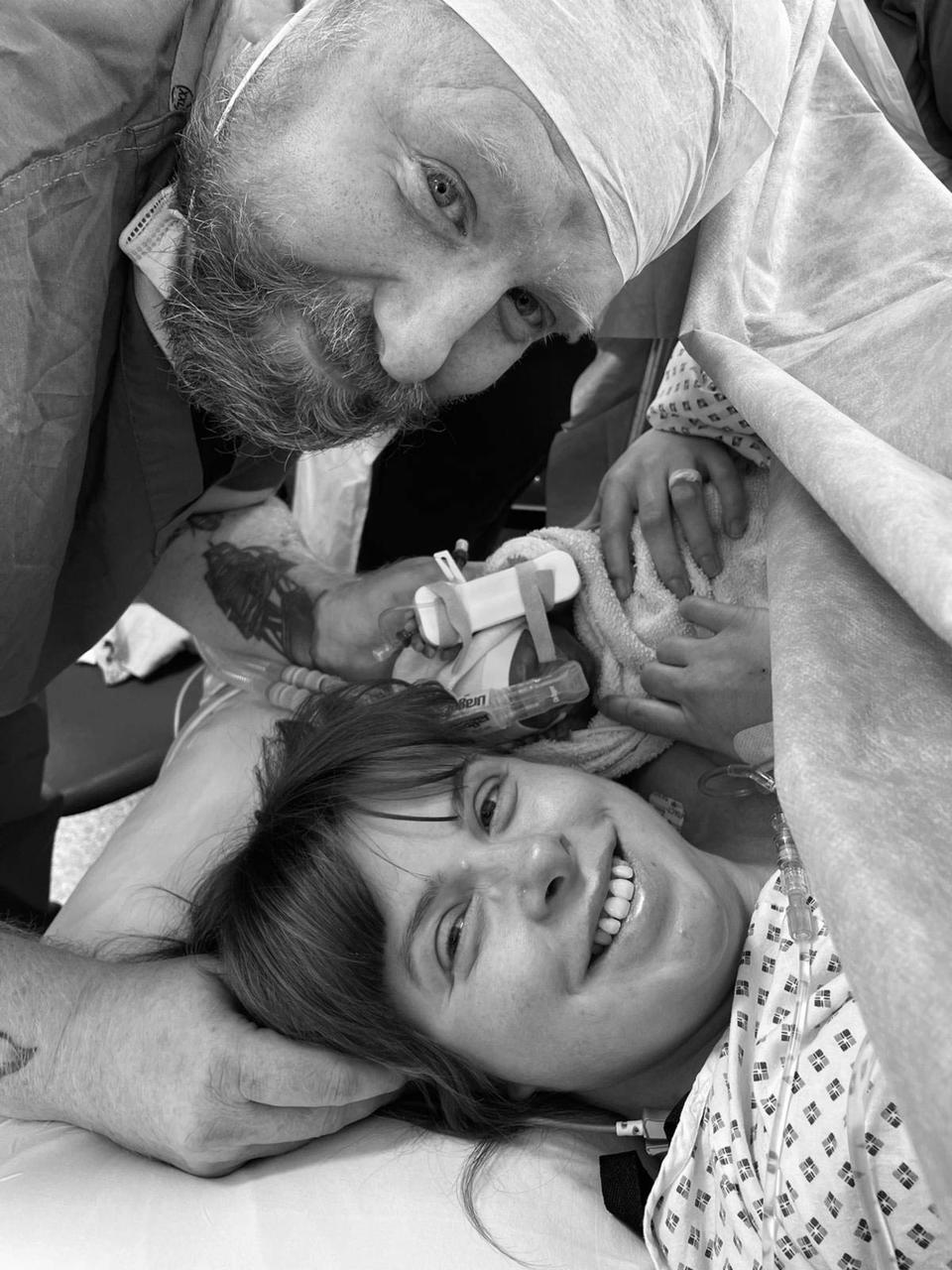
With the funding secured for a third attempt of IVF, the couple discovered it had been successful in June 2022.
Teddy was due on March 1, 2023, but arrived weighing 3lbs 5oz on January 6 via a C-section, after doctors discovered Jennifer’s placenta was failing.
“Teddy was in hospital for a total of six weeks, and it was up and down throughout the entire time as he suffered from some infections and a small gap in a valve in his heart,” she says.
“It was terrifying. We were so worried he was never going to make it.
“However, he is a fighter, and in February, we were finally able to bring him home and start our life together.”
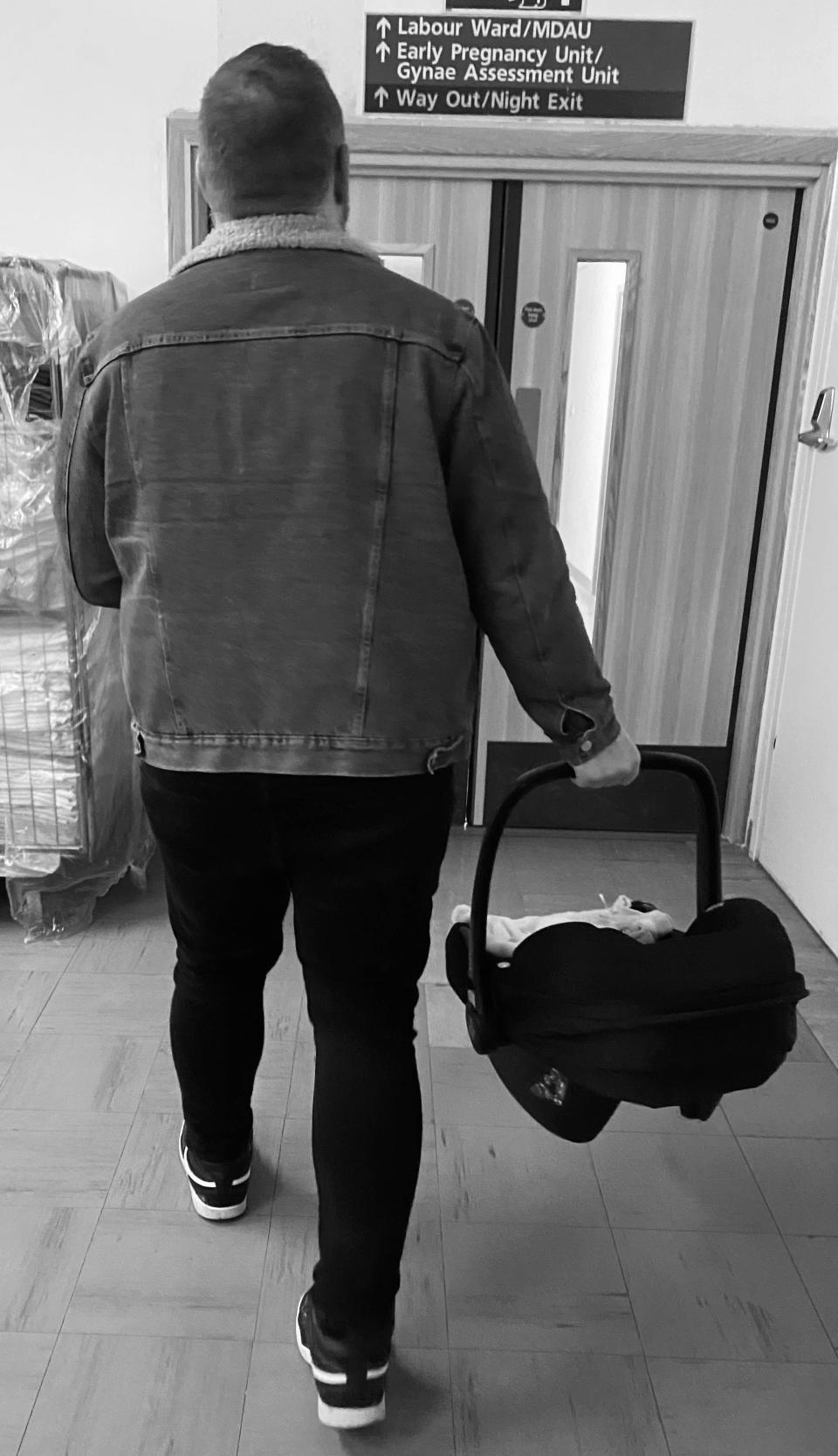
The couple say they are thankful to the people who donate to the charity and gave them the opportunity to become parents.
“A woman who doesn’t know us put money into our future and it’s made us the family that we are now,” Jennifer says.
“We are just eternally grateful that she’s given us our son.
“It’s been a challenging journey over the last four and a half years, but now we are finally called mummy and daddy, it’s the best feeling in the world.”
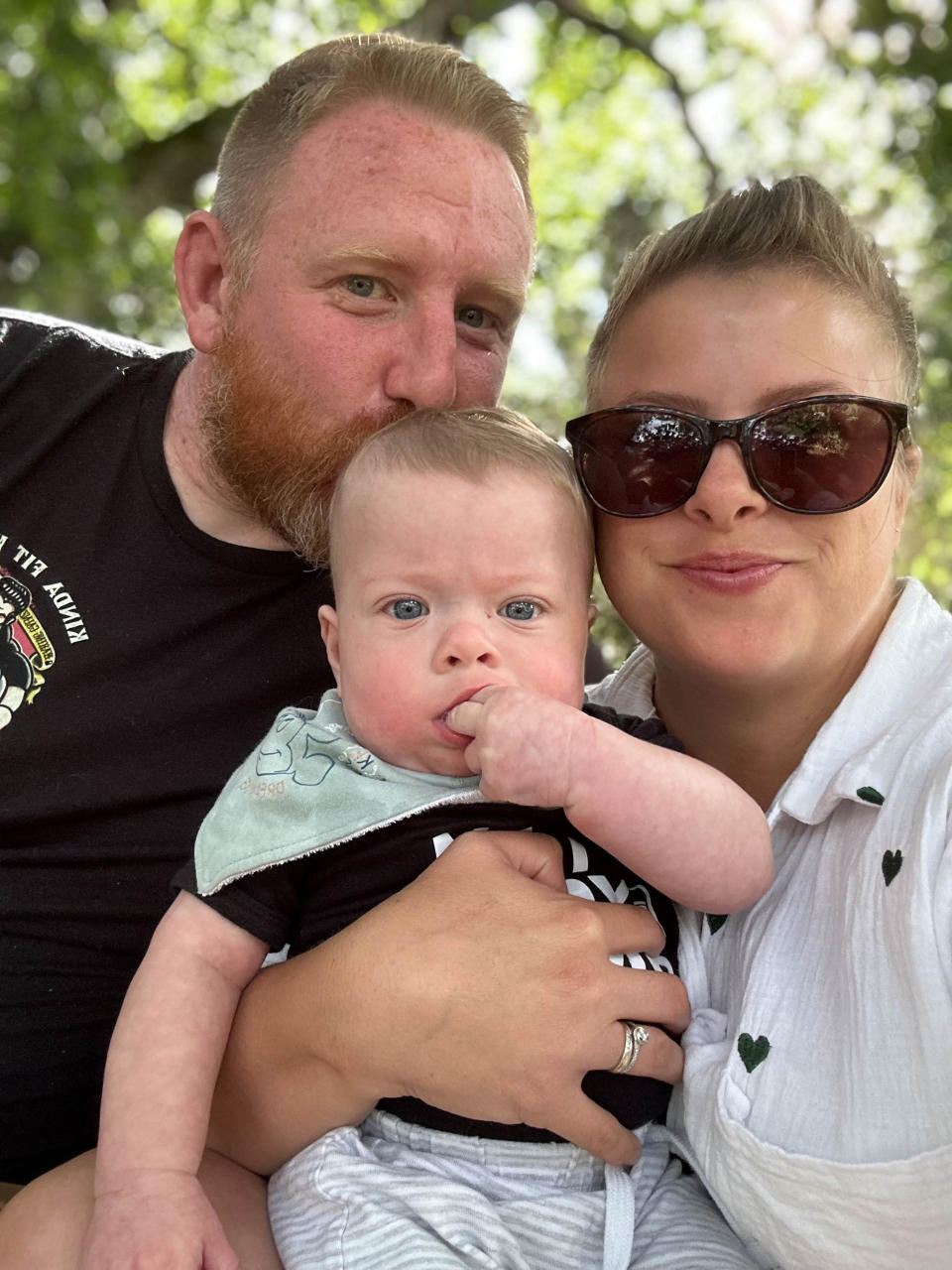
Who is eligible for IVF Funding?
The National Institute for Health and Care Excellence (NICE) fertility guidelines has recommendations for who should be offered IVF.
According to NICE, women aged under 40 should be offered three cycles of IVF treatment on the NHS if:
-
they’ve been trying to get pregnant through regular unprotected sex for two years
-
they’ve not been able to get pregnant after 12 cycles of artificial insemination, with at least six of the cycles using a method called intrauterine insemination (IUI)
The NICE guidelines also say women aged 40 to 42 should be offered one cycle of IVF on the NHS if all of the following criteria are met:
-
they’ve been trying to get pregnant through regular unprotected sex for two years. Or they haven’t been able to get pregnant after 12 cycles of artificial insemination, with at least six of the cycles using a method called intrauterine insemination (IUI)
-
they’ve never had IVF treatment before
-
they show no evidence of low ovarian reserve (where eggs in your ovaries are low in number or quality)
-
they’ve been informed of the additional implications of IVF and pregnancy at this age
That said, the final decision about who can have NHS-funded IVF in England is down to local integrated care boards (ICBs), with it possible for their criteria to be more strict.
ICBs may have additional criteria you need to meet before you can have IVF on the NHS, such as:
-
not having any children already, from both your current and any previous relationships
-
being a healthy weight
-
not smoking
-
falling into a certain age range (for example, some ICBs only fund treatment for women under 35)
For those who find they aren’t eligible and have no option but to pay for treatment, you can have it at a private clinic, typically costing up to £5000 or more for one cycle.
Find out how many cycles of IVF are funded by the NHS in each area of England on GOV.UK
You can also ask your GP or contact your local integrated care board (ICB) for more information about NHS-funded IVF treatment in your area.
Fertility: Read more
Watch: ‘Global issue’: One in six people worldwide affected by infertility, WHO report finds
Additional reporting Caters.






